Parenting isn’t always about fixing problems, it’s also about teaching responsibility. While it’s natural to want to step in and help, sometimes letting kids navigate their own challenges can be more beneficial in the long run. Learning to handle difficult situations independently is a key part of growing up.
One parent stood firm when their 18-year-old daughter, who struggles with anxiety, called home asking to be picked up from a road trip after a disagreement with friends. Sticking to their boundaries, they told her she’d have to figure it out herself. Now, the debate is on: was this tough love, or too harsh? Keep reading to see what people think!
Teenagers often turn to their parents for support when they’re feeling overwhelmed or distressed

Image credits: prostooleh / Freepik (not the actual photo)
A parent sought advice online after refusing to step in when their anxious teen asked for help
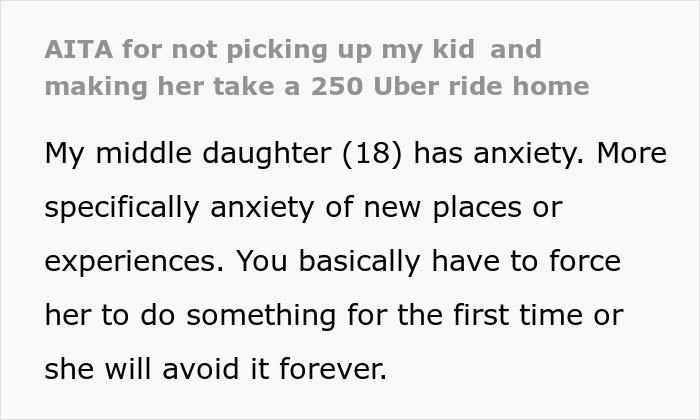
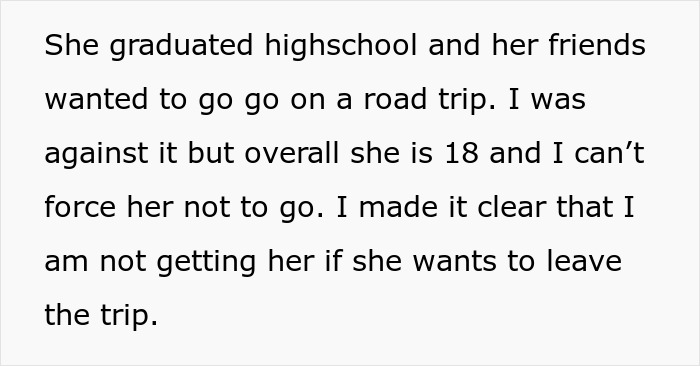
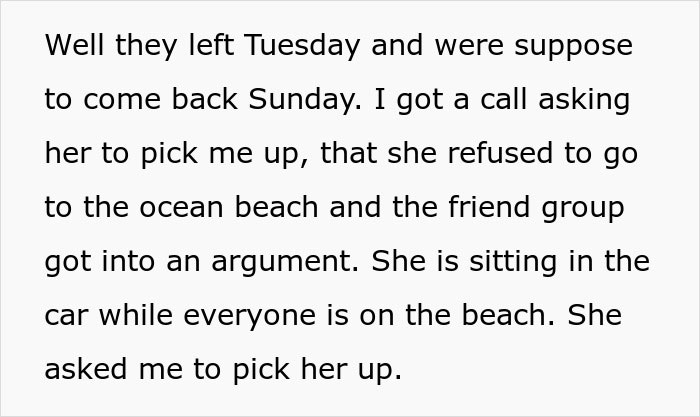

Image credits: Andrea Piacquadio / Pexels (not the actual photo)


Image credits: Theowawayekfnnfor
Anxiety in childhood and adolescence can look very different—what worries a young child might not even phase a teen, while teenage anxiety is often more complex
We can all agree, being a teenager isn’t easy. You’re stuck in that weird in-between stage where you’re expected to start acting like an adult while still figuring out who you are. One moment, you’re excited about newfound independence, and the next, you’re completely overwhelmed by responsibilities you never asked for. It’s a lot to juggle, and for many teens, this phase comes with a fair share of anxiety.
And let’s be real, anxiety isn’t just the occasional stress over an exam or a big game. It’s that nagging, overwhelming worry that doesn’t just go away, making even normal, everyday things feel like a huge deal. Whether it’s worrying about school performance, fitting in, or the uncertainty of the future, anxiety has a way of creeping into different parts of life.
Interestingly, what kids worry about changes as they grow up. When they’re little, fears are more external, like monsters under the bed, the dark, or creepy crawlies. But as they hit their teen years, their worries shift inward. Now, it’s all about grades, social status, how they look, and what others think of them. The pressure to be “good enough” at everything can feel unbearable.
According to a 2019 report by the National Institutes of Health, nearly one in three adolescents (ages 13 to 18) will experience an anxiety disorder at some point. That’s a pretty big number, and yet, so many teens struggle in silence because they’re either too good at hiding it or don’t even realize what they’re going through.
The tricky part? Anxiety doesn’t always scream for attention—it sneaks in. Some teens might seem perfectly fine on the outside but struggle with constant worrying, irritability, or trouble focusing. Others might start avoiding social situations, complaining of stomachaches or headaches, or suddenly losing interest in things they used to love.
Loved ones can play a crucial role in helping teens manage anxiety by offering support, reassurance, and understanding
And while every teen has tough days, certain signs could point to something more serious. Persistent fears and worries about everyday situations, extreme self-consciousness or sensitivity to criticism, and avoiding new or challenging experiences can all be red flags. A sudden drop in grades or refusing to go to school might indicate deeper struggles, as can feeling restless, irritable, or overwhelmed without a clear reason. These behaviors, though sometimes subtle, can signal that a teen is dealing with anxiety and may need extra support.
As a parent, friend, or sibling, it’s important to keep an eye out for these signs. If a teen seems to be struggling, the first step is simply talking to them. Let them know they’re not alone, that what they’re feeling is valid, and that there are ways to manage it.
If anxiety starts interfering with their daily life, it might be time to reach out for extra support. Mental health professionals like psychiatrists, psychologists, or counselors can provide the right tools to help them navigate these feelings. Sometimes, just having someone to talk to makes all the difference.
In this particular case, the parent was trying to push their child toward independence while also setting boundaries. But was it tough love, or was it too harsh? What do you think? Let us know your thoughts!
Many people online believed the parent made the right choice, as it would teach their 18-year-old independence and resilience
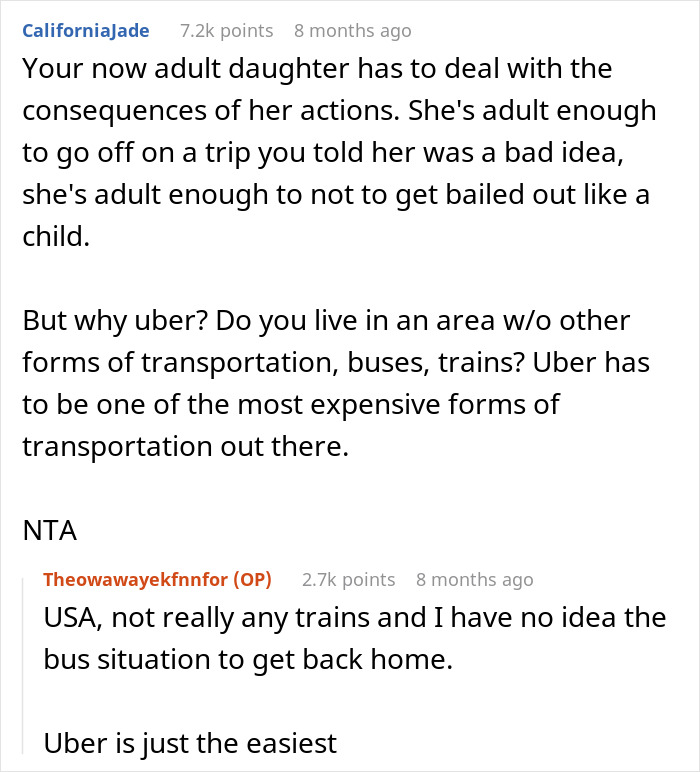

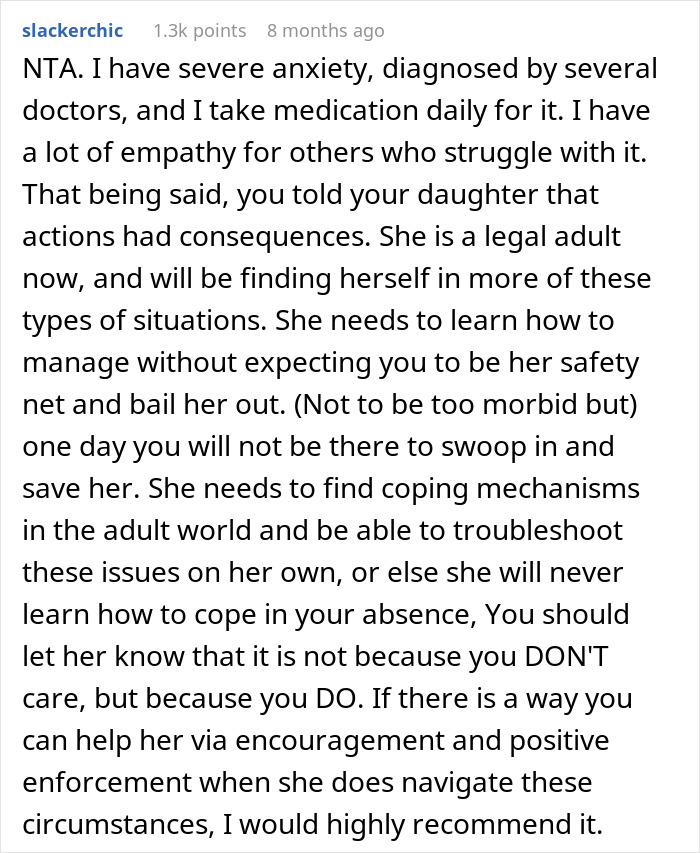


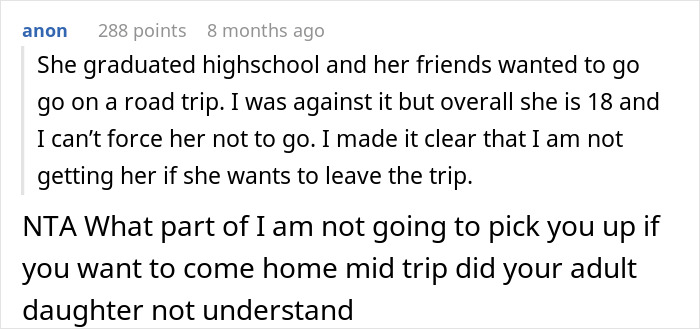
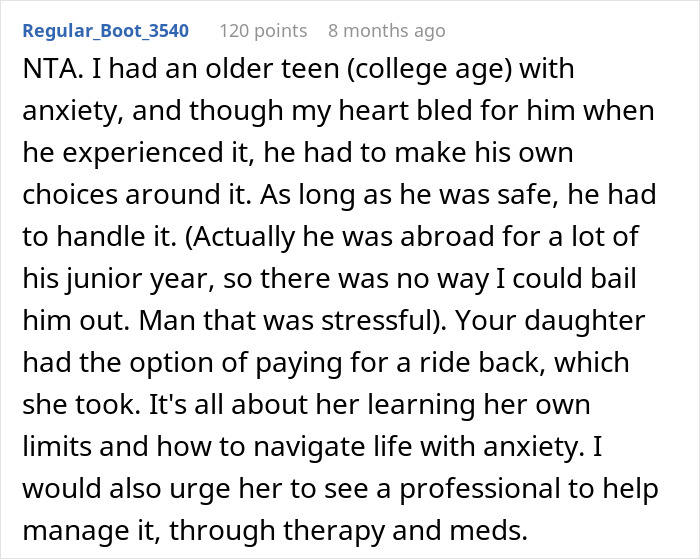
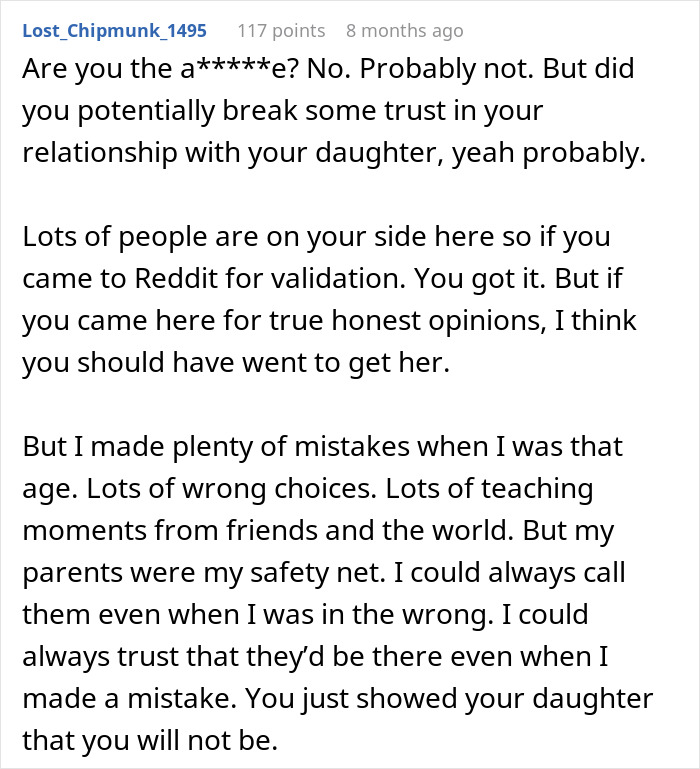



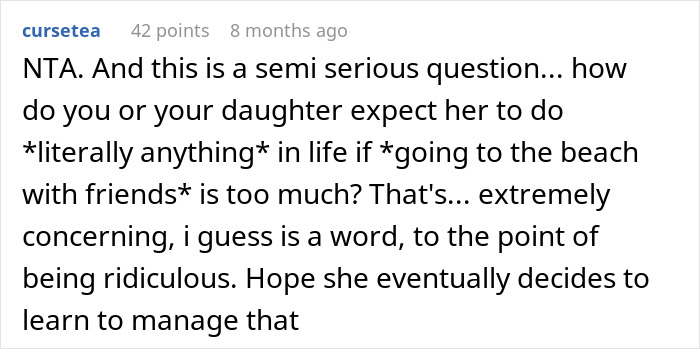
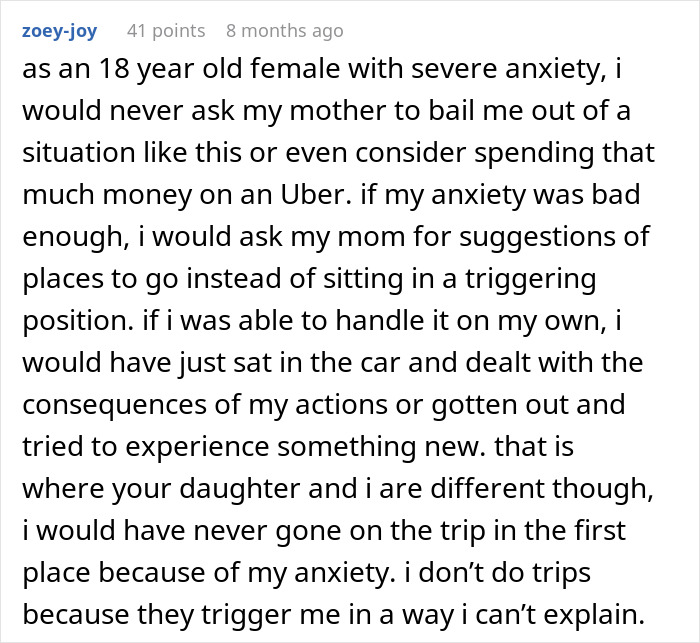

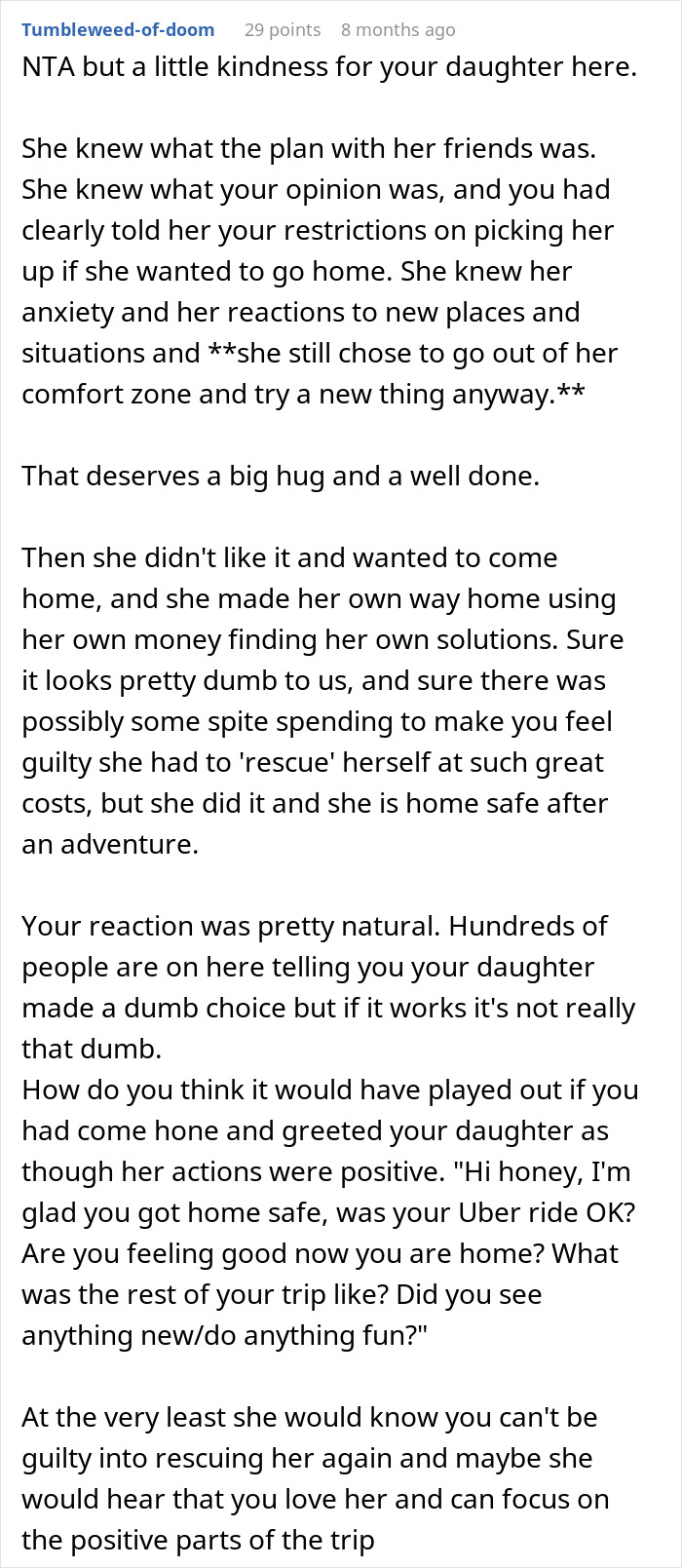

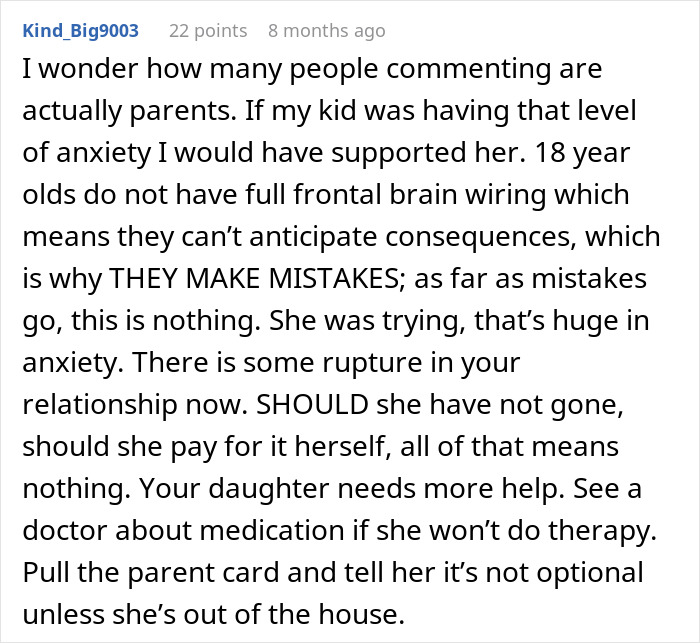

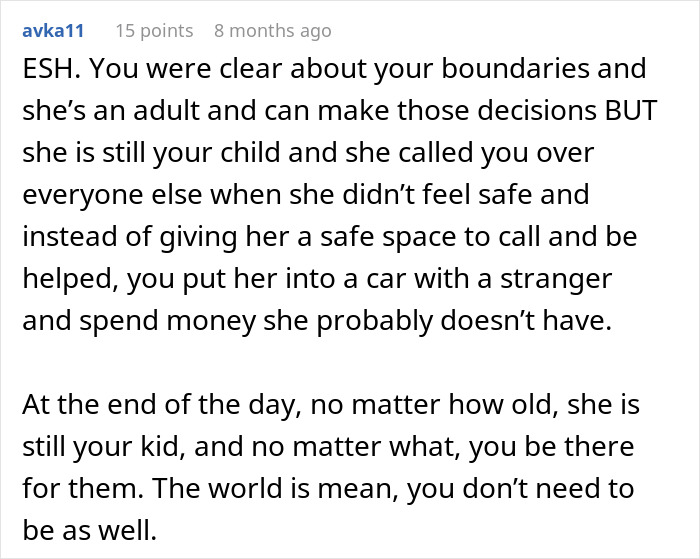
Others felt that, as a parent, it was their responsibility to step in and help their child navigate the situation
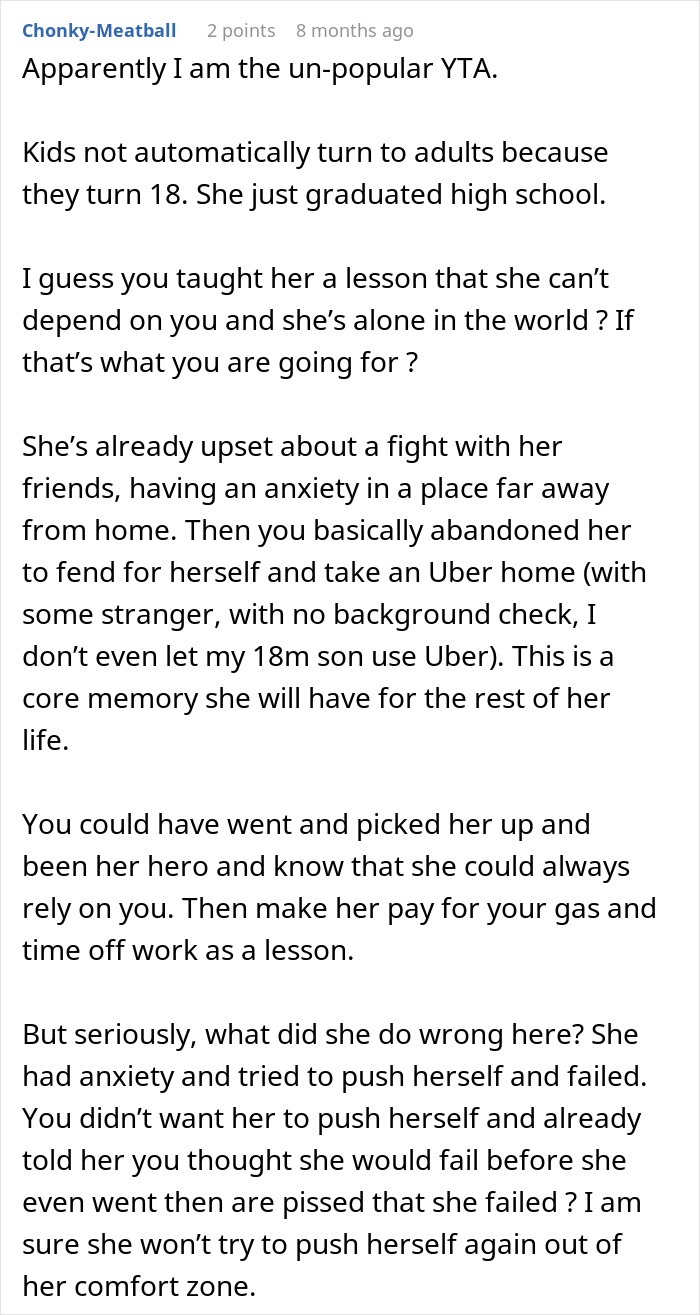
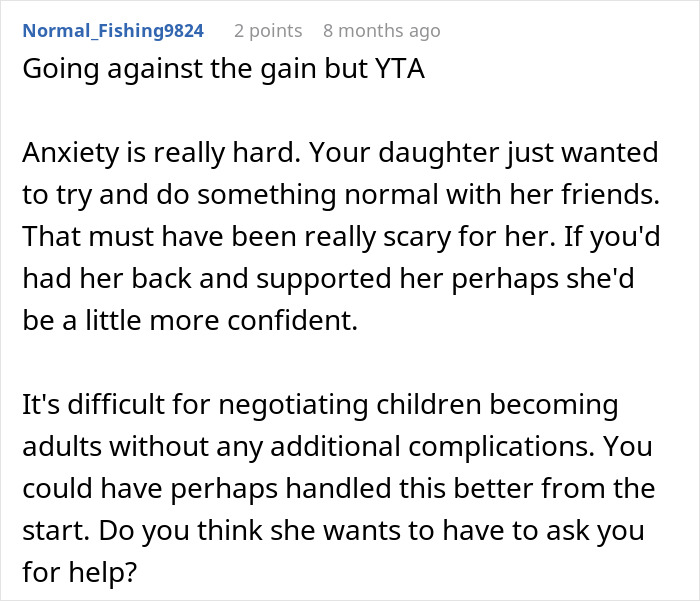
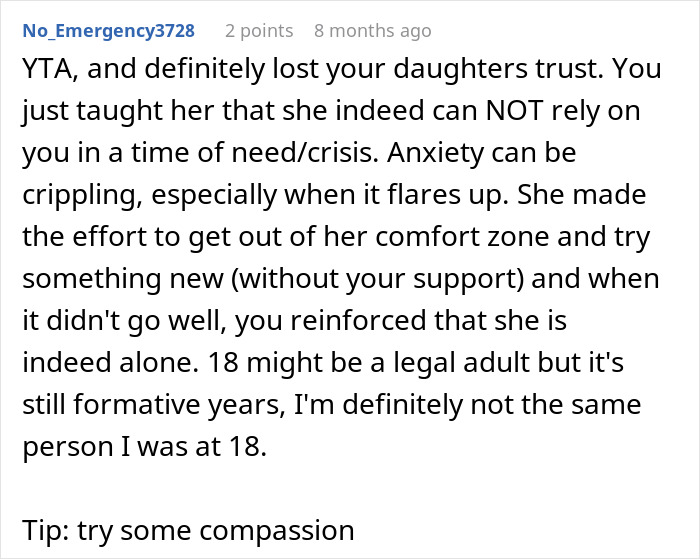
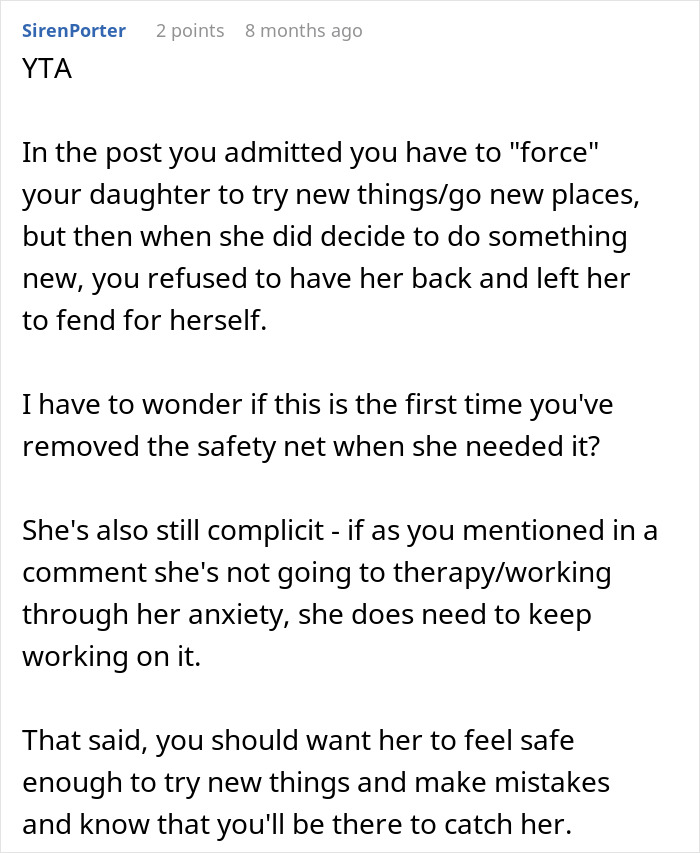

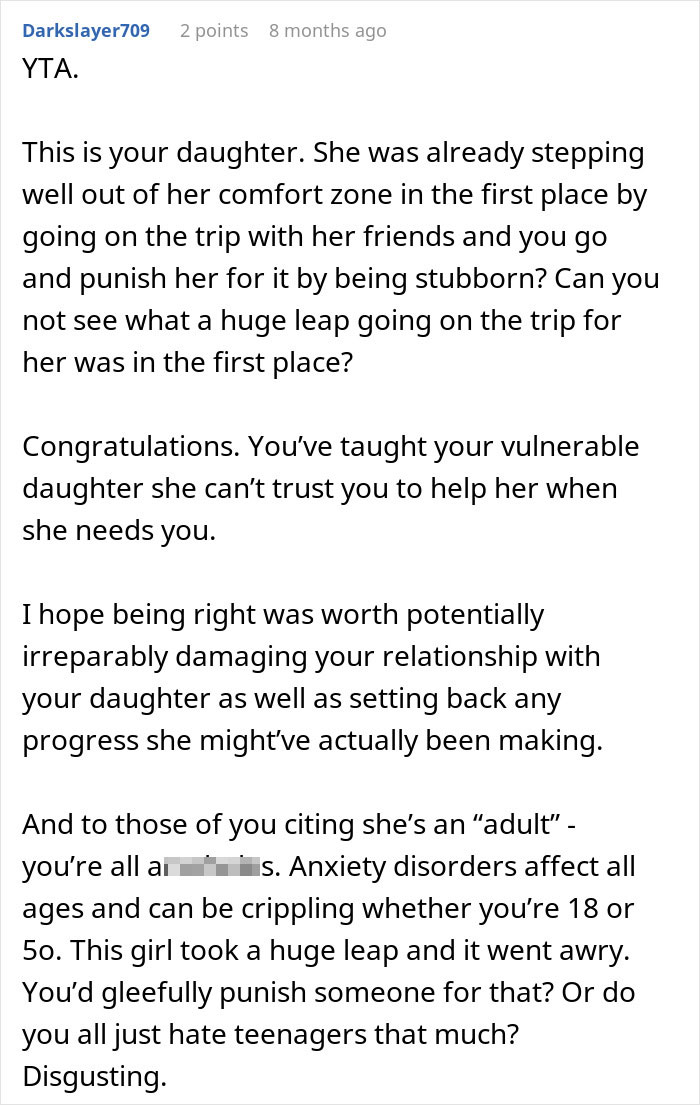
The post Parent Refuses To Pick Up Anxious Daughter From Road Trip, She Pays $250 For Uber Home first appeared on Bored Panda.
from Bored Panda https://ift.tt/1YuF8wW
via IFTTT source site : boredpanda